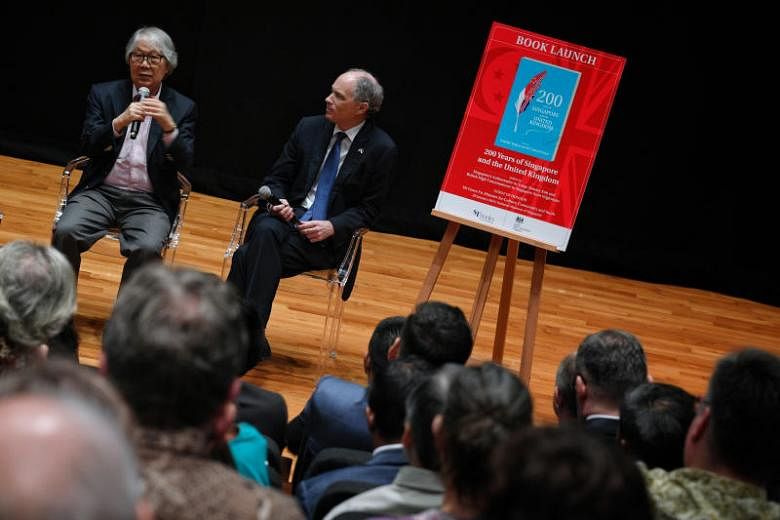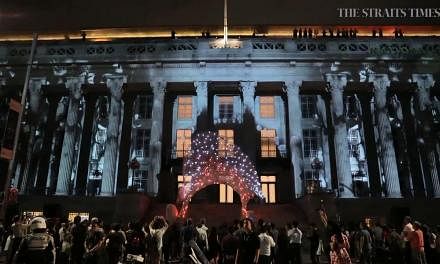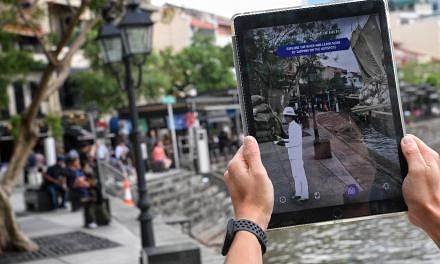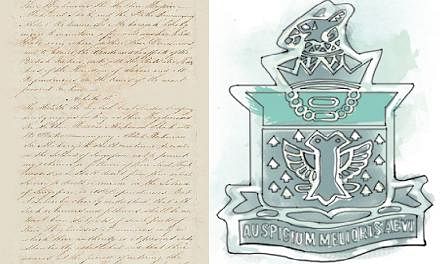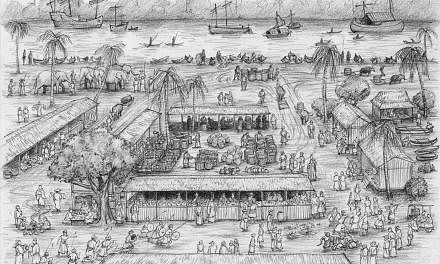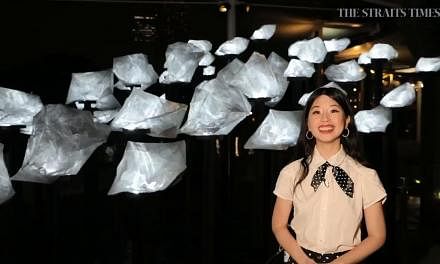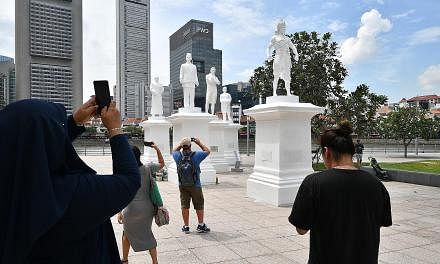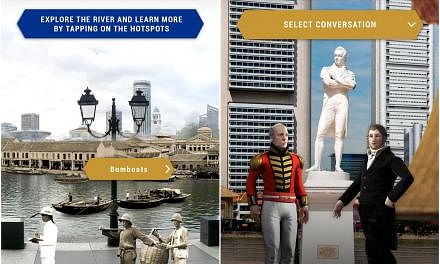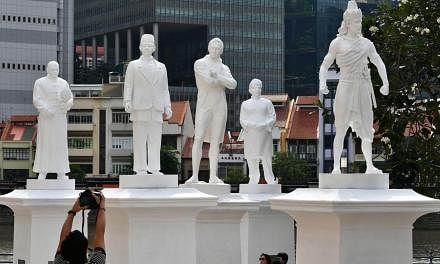SINGAPORE - The person who did the most for the success of Singapore in the crucial first four years of the arrival of the British was not Sir Stamford Raffles but Major-General William Farquhar.
Ambassador-at-Large Tommy Koh said this at the launch of a book to reflect on the shared history between Singapore and the United Kingdom on Tuesday (Jan 29).
Titled 200 Years Of Singapore And The United Kingdom, the book published by the Straits Times Press features a series of essays by scholars, historians and subject specialists from both the Republic and the UK.
Among them are historians Kwa Chong Guan, Albert Lau, Tan Tai Yong, Karl Hack and Anthony J. Stockwell, as well as former top civil servant J. Y. Pillay.
Professor Koh, who co-edited the book with British High Commissioner to Singapore Scott Wightman, said they both felt that "Raffles has been given too much credit and the first two Residents, Farquhar and John Crawfurd, too little, for the success of early Singapore".
While Raffles had laid down a number of broad principles, plans and priorities for the new port in Singapore, he was largely absent. It was Farquhar who created the circumstances that allowed the port to thrive, according to an essay in the book by Dr Graham Berry, the former Scottish Arts Council chief executive.
Differences in opinion led Raffles to successfully campaign for Farquhar's removal from the island, wrote Dr Berry.

This is among the new insights into Singapore's early colonial history that the collection of essays provides, Prof Koh said at its launch at the National Museum of Singapore.
The book, which Mr Wightman describes as "warts and all" in his foreword, begins with two essays on pre-colonial Singapore, before delving into milestones including the arrival of the British, the Japanese Occupation during World War II, Singapore's independence in 1965 and the shock withdrawal of British forces.
It also reflects on the British legacy in Singapore, covering its influence in areas such as literature, law, healthcare and education, and looks towards the UK's impending exit from the European Union, where it will have to "chart its own independent path forward", writes Singapore's High Commissioner to the UK Foo Chi Hsia.
Speaking at the event, Minister for Culture, Community and Youth Grace Fu said that in the years since independence, Singapore has built on many of the attributes and foundations left by the British, while at the same time finding its own footing and identity as a young nation.
The book launch was held 200 years to the date that Raffles and Farquhar first set foot on the island of Singapore to establish a trading post for the East India Company.
It also comes a day after Prime Minister Lee Hsien Loong kicked off the Singapore Bicentennial, a year-long commemoration of the founding of modern Singapore which will feature activities, exhibitions and events by artists, schools and ethnic associations, among others.
Prof Koh, who said he aimed to write a balanced and objective account that neither glorified nor vilified Singapore's colonial past, assessed that during their 142-year rule of Singapore, the British did "some good things and some very bad things", roughly in the proportion of "60 per cent good and 40 per cent bad".
"The British left us with a rich and positive legacy" which Singapore's founding fathers were able to build on, said Prof Koh, who noted that Singapore's relationship with Britain has evolved from that of ruler and ruled to one between equals, with the Republic even surpassing the UK in some aspects.
Agreeing with his co-editor's assessment, Mr Wightman said Singaporeans took some of the institutions and approaches developed by colonial administrators and applied them "invariably much more effectively than their predecessors".
"It's been interesting for me to observe in the last 12 months how many different views there are in Singapore on the significance of the anniversary, the impact of British rule and administration and what it means to be Singaporean," he said, adding that he hopes the book will help to enlighten and contribute to the bicentenary debate.
200 Years Of Singapore And The United Kingdom is available in major bookstores and at www.stbooks.sg for $35.
